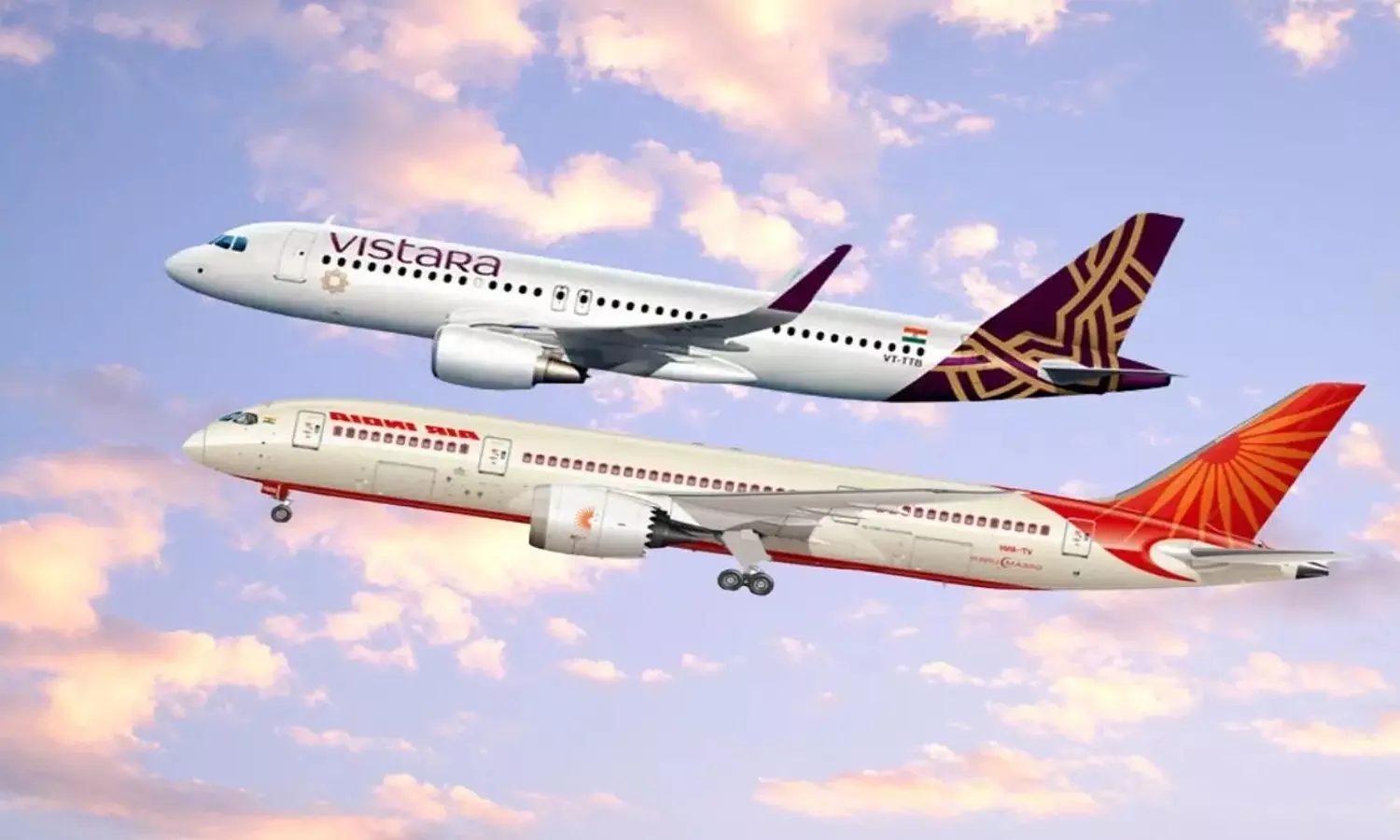Year-Ender 2024: Air India-Vistara Merger Brings Major Changes to Indian Aviation
Air India and Vistara merge to create India’s sole full-service carrier, boosting Tata Group's aviation leadership and enhancing global competitiveness.
Year-Ender 2024: Air India-Vistara Merger Brings Major Changes to Indian Aviation

As 2024 comes to a close, one of the most transformative events in the Indian aviation sector is the merger of Air India and Vistara. Officially completed on November 12, 2024, this consolidation marks a pivotal shift in the aviation landscape, solidifying the Tata Group’s leadership in the skies.
With this merger, Air India becomes the sole full-service carrier (FSC) in India, a significant milestone for the industry. This consolidation follows a trend set in motion by the relaxation of foreign direct investment (FDI) norms in 2012, which allowed global airlines to collaborate with Indian carriers. Now, with Singapore Airlines holding a 25.1 per cent stake in the expanded Air India, the merger highlights the role of international partnerships in shaping Indian aviation.
The merger is the result of a carefully executed strategy by the Tata Group, which reacquired Air India in 2021. By integrating Vistara, a joint venture with Singapore Airlines known for its premium services, the Tata Group aims to strengthen Air India’s position in both domestic and international markets.
The new entity, operating under the Air India brand, combines a fleet of over 250 aircraft with an extensive route network, enabling it to cater to diverse customer segments.
The integration blends Air India’s legacy and expansive network with Vistara’s focus on luxury and customer-centric services. Passengers can expect improvements in in-flight offerings, such as enhanced entertainment systems, upgraded cabins, and consistent service quality. Whether flying economy or first-class, travelers are set to experience a more refined journey.
This merger, reportedly, not only strengthens Air India’s market position but also elevates the Indian aviation sector on the global stage. With a focus on long-haul international flights, the new Air India is better equipped to compete with global carriers on key routes connecting India to the United States, Europe, and Asia.
The consolidation is also expected to streamline operations, reduce costs, and improve financial stability, making the airline more resilient in an intensely competitive market. This, in turn, positions the Indian aviation industry as a growing force in the global economy.
The merged airline is expected to prioritize fleet modernization, aligning with global trends toward more fuel-efficient and sustainable aviation. This focus supports broader efforts to reduce the carbon footprint of air travel, an increasingly important factor in the industry’s evolution.
Beyond operational benefits, the merger has significant economic implications. The consolidation is likely to generate cost efficiencies and improve profitability, which could positively impact India’s aviation market. As the industry grows, it is expected to attract more investment, including from foreign entities, further boosting India’s position as an aviation hub.

